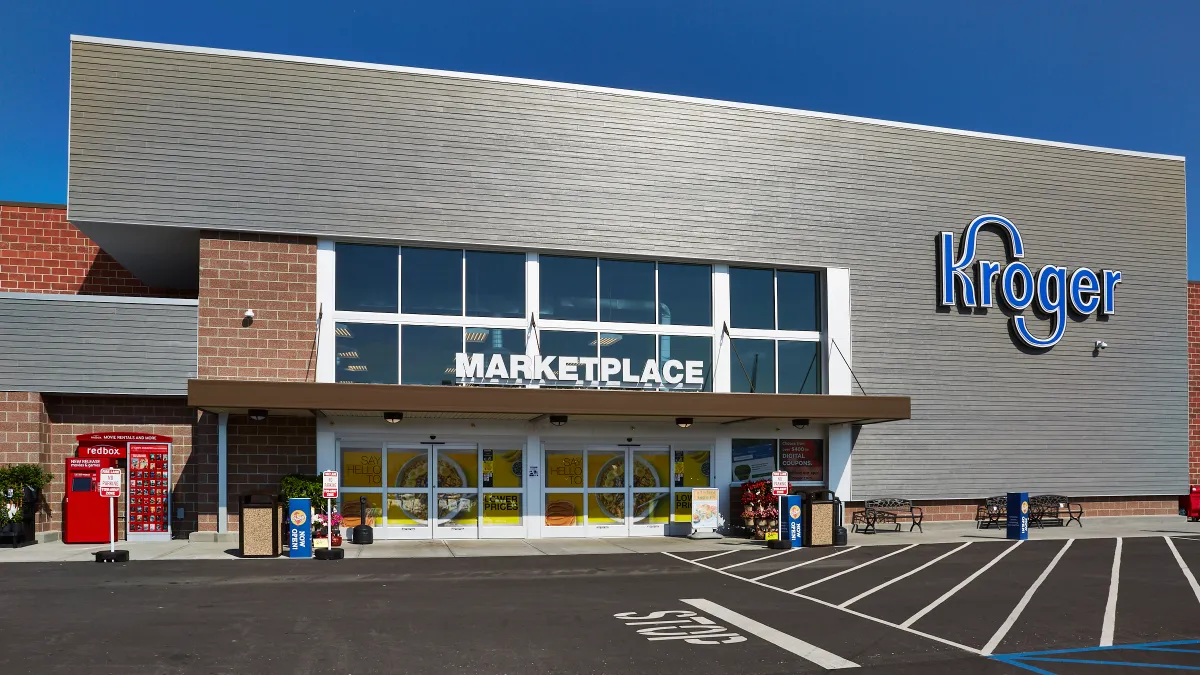Dive Brief:
- The attorneys general of Ohio and three other states on Wednesday urged a federal court to reject the Federal Trade Commission’s bid to block Kroger from merging with Albertsons.
- In an amicus brief filed with a federal court in Oregon, the state officials said the proposed merger would boost competition in the grocery industry — not constrain it, as the FTC contends.
- The attorneys general said the FTC’s effort to stop the merger is based on an overly narrow definition of the grocery marketplace that incorrectly leaves out non-traditional grocers like Costco, Walmart and Aldi.
Dive Insight:
The effort by the top legal officials of Ohio, Alabama, Georgia and Iowa to convince the federal judge who will decide whether to grant the FTC’s request to halt the merger bolsters Kroger and Albertsons’ position that their planned combination would be good for consumers.
A hearing before Judge Adrienne Nelson of the U.S. District Court for the District of Oregon to assess the FTC’s case is due to start Aug. 26.
The FTC, joined by the attorneys general of eight states and Washington, D.C., claims the merger would raise prices and hurt workers because it would bring together the two largest operators of traditional supermarkets in the United States. But in their brief this week, the four states siding with the grocery chains said the FTC’s contention is based on a “simplistic vision of the retail grocery market, and blocking the acquisition would weaken, not protect, competition among firms vying for consumer grocery purchases.”
The brief also criticizes the FTC for its dismissal of Kroger and Albertsons’ plan to assuage antitrust concerns by divesting nearly 600 stores and other assets to C&S Wholesale Grocers.
Dave Yost, the attorney general of Ohio — Kroger’s home state — filed the brief on behalf of the four states.
The attorneys general said in the brief that the FTC’s case against the merger reflects the agency’s belief that all large grocery store operators should be prohibited, adding that “this Court should not aid the Commission in pursuing an economically groundless policy goal.”
The merger would promote competition by strengthening Kroger’s “ability to compete more effectively in the wide-open market for consumers’ retail grocery dollars,” according to the brief.
The brief continued: “The success of Kroger as a grocery retailer should be rewarded, not punished, and the antitrust laws must not be enforced to chill the very competition they seek to protect. Blocking this transaction would diametrically conflict with the congressionally mandated duty of the Commission to protect and promote consumer welfare.”
The attorneys general also claim that Kroger and Albertsons would have little incentive to harm consumers if they are able to merge. The FTC “is oblivious to the plain-as-day economic reality that raising prices, worsening services, and lowering quality – its allegations – would actually weaken Kroger as a retailer and drive consumers into the waiting arms of its many competitors,” the attorneys general said.
The officials indicated in their brief that neither Kroger nor Albertsons was involved in its preparation.
“This brief was not authored in whole or part by counsel for a party. No party or its counsel contributed money that was intended to fund preparing or submitting this brief,” the legal document says.
In addition to the FTC’s case, Kroger and Albertsons also face state-level efforts to stop their merger mounted by the attorneys general of Washington state and Colorado.













